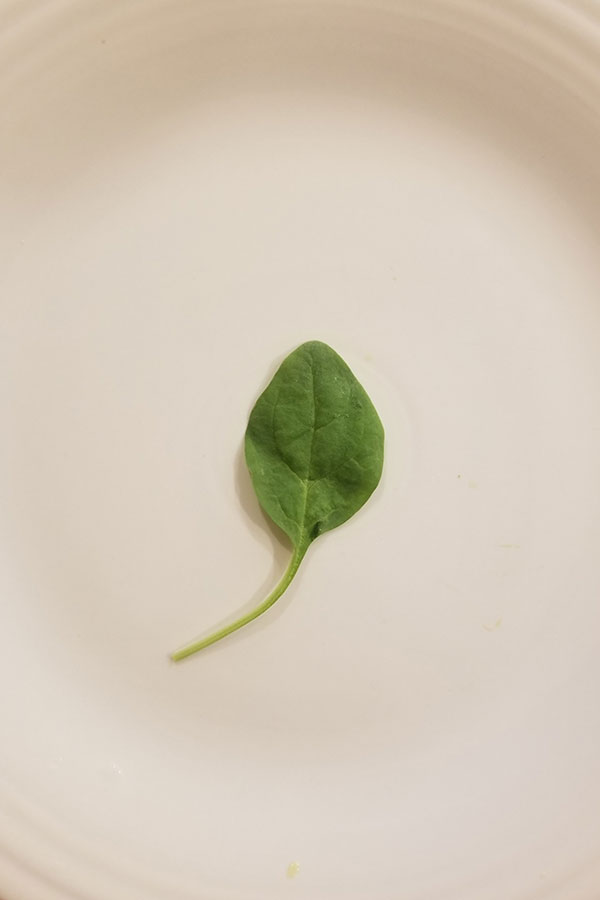Spinach
TIMEFRAME: variesReduce oxalates in spinach through portion control, food pairing, and cooking techniques.
Why Detoxify?
Spinach has a long tradition of seasonal use throughout the Mediterranean region. Continuous use can lead to high levels of oxalate crystals in our bodies, which have been linked to kidney stones, joint pain, and chronic disease.
Eat Smaller Portions, Less Often
The popularity of spinach smoothies and spinach salads has predisposed many health-conscious individuals to the cumulative effects of oxalates. Limit spinach consumption to when it is locally available. Avoid consuming it daily, or with other high oxalate foods.
Pair with Calcium
The classic Greek dish spanakopita weds spinach with high calcium feta cheese, a gastronomic combination with health benefits. In the digestive tract, oxalic acid binds with calcium to help neutralize its chronic accumulation in the body. We recommend fermented dairy such as cheese, kefir, yogurt, crème fraîche, or cultured butter.
Boil or Blanch
Oxalates are water soluble and can be reduced by boiling spinach and discarding the cooking water. To preserve spinach for non-seasonal use, blanch and freeze it. Or blanch and dehydrate it into a powder. Unfortunately, B vitamins are also water soluble and will be lost in the process.
Drink Water
Help your kidneys dilute and flush out oxalates in spinach by staying hydrated before eating.
